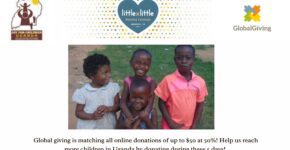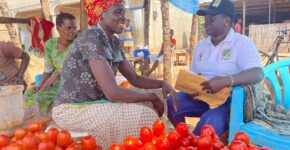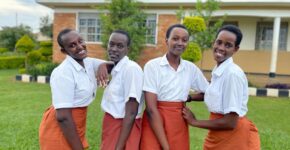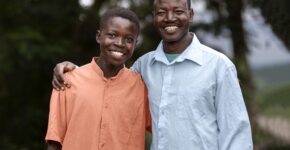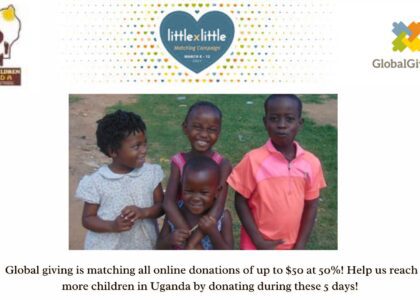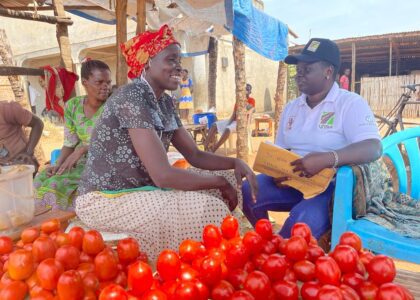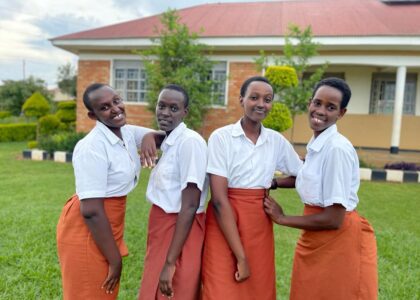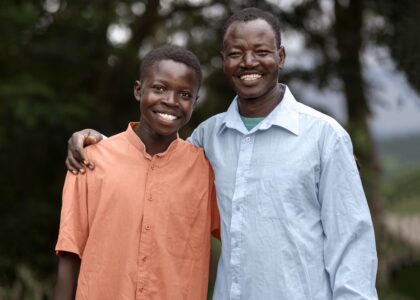Addressing Violence against women and girls in mining areas of Kitgum district
Project Information
With funding from UNDP under the Spotlight initiative JFCU implemented a 09 months project that started in June 2020 to March 2020. JFCU worked to address violence against women and girls stemming from their mining related activities by using a social economic empowerment lens. The project aimed at promoting gender equitable, social norms, attitudes and behavioral change across all levels of the socio-ecological model to prevent VAW/G and harmful practices in mining areas of Kitgum district.
The project covered sub-counties and communities of Layamo along Pagir River for sand mining activities, Kitgum municipality in villages of Acutomer B for stone quarry mining. The other sub counties included Labongo Amida West sub-county in Lamola Parish at Layik West village where quarrying is the major economic activity and finally in Mucwini sub-County in Tee Pwoyo East and west villages Pudo Parish. All these communities were selected with support from the Kitgum district officials and the Rapid assessment exercise conducted provided a rationale for engaging these communities.
To achieve the set goals, the project intended to
- Enhance mechanisms to mitigate risks of GBV, VAC and other harmful practices in the mining sector
- Strengthen and facilitate women to access economic and livelihood support towards preventing GBV in the mining sector;
- Strengthen coordination among local government structures to protect women and girls rights.
During it the nine months period, JFCU was able to implement the following activities
- Formation and formalization of women mining associations;
- Formation and training of Mining and Quarry Grievances Reporting Committees (MGRCs);
- Economic empowerment training for women miners associations;
- Community dialogues;
- Radio Talk shows
- Strengthen the referral pathways including the Sub county Orphaned and vulnerable children committees (SOVCCS) and District Orphaned and vulnerable children committees (DOVCCS)
UNDP under the spotlight initiative focused on enhancing efficiency in gender responsive budgeting, monitoring and improved evidence – based advocacy, periodic policy review to integrate and allocate resources to deliver SGBV, and SRHR. UNDP is also piloting innovation and scale up evidence models with livelihood opportunities to comprehensively address Violence against Women and Girls.
In order to facilitate access for women to economic and livelihood support, the spotlight Initiative aims to support formation and formalization of small-scale women business including those in Artisanal and small scale Mining (ASM) associations, village savings and loan associations (VSLAs)
The project comprised of the following Truck Components;
- Formation and formalization of women’s mining association
- Support Enterprise Development for Women mining association.
Success Stories
Women Economic Empowerment
On 26th October, we visited Amida village in Labong –Amida sub-county in Kitgum district to meet the women miners. It is one of the mining communities in the district. The women spend half of the day quarrying stones using rudimentary tools to break the larger rocks into smaller ones which they later sell at 10,000shs(3$) a heap, to construction workers.
Economic empowerment was one of the activities and it included training women in basic financial literacy skills such as saving.
The women formed Village savings and loans Associations and one of them is Ruu Ki Tic (meaning morning hours are working hours) women’s saving group. The group brings together women miners who save for mutually agreeable objectives and take out small loans from those savings to expand their business, pay for children’s school fess and support household incomes. The members meet every Tuesday.
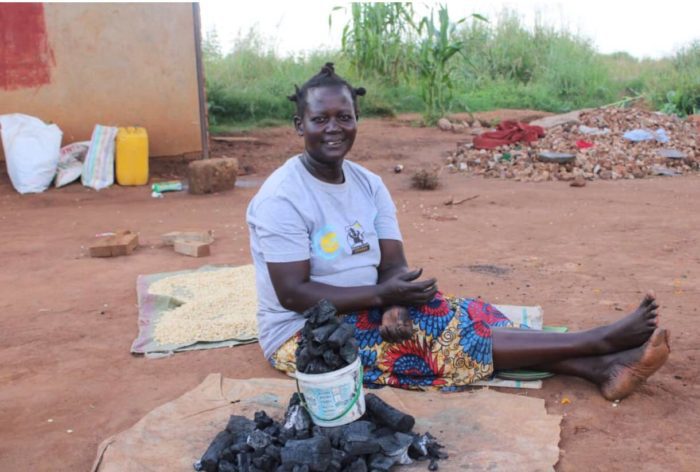
We meet Adyero Consi, a 45 year old woman married with 6 six children who is a member of the savings group. She tells us how she will use her annual savings to support her children in school and add more capital to her piggery business and charcoal business.
I had savings of 80,000shs (25$) from the group and bought 1 pig at 95000shs (27$), my husband added me the 15000shs (5$).I looked after it very well and I had to sell after a period of time at 120000shs (35$) and now I have 2 old pigs at home which am hoping to sell and buy more, she says with so much pride in her voice. She also deals in charcoal business and sells to her neighbors.
The women say the spotlight program has been beneficial to them in so many ways.
I am very thankful for this project; it has made us realize that we are not vulnerable because we also support each other as group members whenever one of us gets a problem. My whole life has changed now, am able to supplement my husband’s income in making sure that our children stay in schools she say while smiling.
When the women meet, they not only save but also advise each other on how they tackle issues of domestic violence in their homes. She hopes that the project will reach out to more women who are not economically empowered and that they will be encouraged to form or join the groups.
Story 2
Sande Aber is a very vibrant young woman living in Amida parish in Kitgum. At 25 years old, she is married with 4 children and lives in a small house .She practices peasant farming, grows vegetables, simsim and sweet potatoes to feed her family. She also works in the stone quarrying mines after gardening.
Like most women in her community, Aber single handedly supports her children’s needs.

Since the passing of my parents, I have been burdened to look after my siblings making it hard to raise enough resources for all of them she said
In 2020, Aber learnt about the UNDP project under the spotlight initiative implemented by Joy for Children-Uganda to end violence against women and one of the core activities was women economic empowerment.
The social economic empowerment model which is sometimes referred to Social Economic Strengthening (SES) is used to create safe spaces for the women and girls to learn and share life experiences which help to rethink and organize them better to improve their life style and train in different business skills to transform themselves and their communities social economically.
Through the SES model, JFCU formulated and trained 5 women mining associations that have continued to support their women members to access quick and small loans for their businesses and has created safe spaces for them to discuss their issues. Aber belongs to one of these women groups through which she was given a loan of 70,000shs and with that she has started a micro business selling second hand clothes and another items for domestic consumption such as sugar, cooking oil and cigarettes.
I was so happy when I was selected for the project, I really wanted to be part of a development group in my community because I was looking for ways of making more money and support my family, She added.
Aber trades in 5kgs of Sugar, 2-3 liters of cooking oil and few packets of Cigar at each time. From the food items (sugar, cooking oil and cigarettes) she earns about 5,000shs each day from the business. From her clothes business she invests up to 50,000shs and averagely 20,000 each day including her profit. She also sells once worn clothes that she displays for passersby in her small compound.
This side business is generating money that I am using to support my children and siblings. It is an added income to the money I made from the stone querying. said mentioned.
Aber also mentioned that the economic empowerment aspect has contributed to both reduction and increase in GBV. The project has improved her economic status by providing her with knowledge on how to engage in economic activities and also provided funds for her to start her business. The business has generated more money that she is using to support the family.
We openly discuss about the challenges in our homes openly and there is no judgment from other women. she said.
Aber is excited about the growth of the group. She saves 6,000shs every week and hopes that this money will support her start a big business in town. She therefore suggested that organizations support the groups with more money for loans so that they can start bigger businesses that will completely change their lives.
Monitoring Activity.
We officially opened our field office on Labong road, Kitgum district. Also during the stay we visited Ruu Ki Tic women saving group in Mucwini sub-County. The women save and provide social support to one another in the matters of GBV. The group has saved up to 3.9 million shillings for the last 7 months.
During the meetings, women report and discuss issues of GBV among other domestic challenges
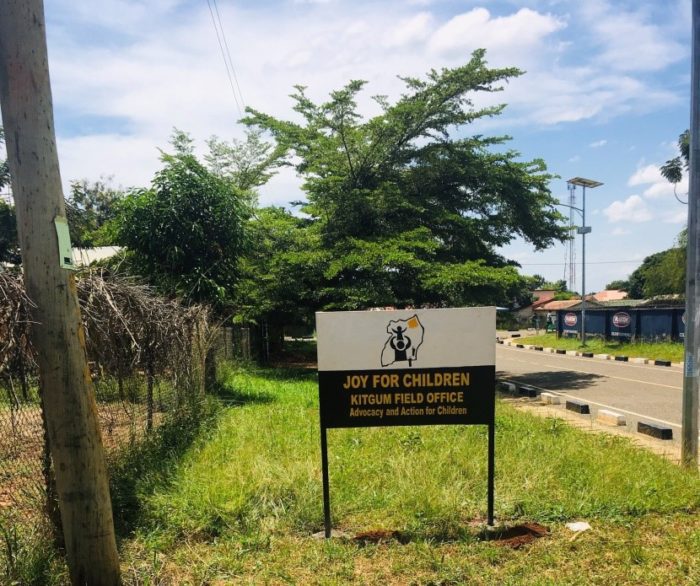
The team was privileged to visit the business of one of the beneficiaries of the project. Agnes, a member of one of the women’s savings group started her micro business selling second hand clothes and food items from a loan that she acquired form the group. She is now able to provide for her children. She mentioned that even when there isn’t enough, she is able to provide a few basics for the family.
She juggles a number of income generating activities to enable her raise more money such as mining stone and sand and growing vegetables.

Evaluation meeting
UNDP M&E officer and MGLSD engaged the JFCU team using a MOV tool that was developed for the purpose. The purpose of the evaluation was to for the team to prepare for final evaluation slated for next year and prepare for future programming.
JFCU- implemented pillar 2 of the spotlight initiative which is “Strengthened Institutions”.
Akello Flora, Tukwasibwe Sandra and Charlotte Kusemererwa supported during the meeting.
Action Points
- Develop GBV capturing tool.
- Follow up on GBV cases beyond the mining communities
- Develop a case management and case recording tools.
- Print Informative Educative Communicative (IEC) materials for trainings
- Disseminate the referral pathway to the savings groups in the communities.
Recommendations and Lessons Learnt
- Be more deliberate on capturing data on GBV cases.
- Get the SASA methodology manual because it has the (IEC) materials.
- Develop an independent data collecting tool for GBV cases
- Develop violence incidence report.
- Extend the project phase to create more impact among the beneficiaries and beyond
- There should be timely release of funds so that activities can be implemented effectively


